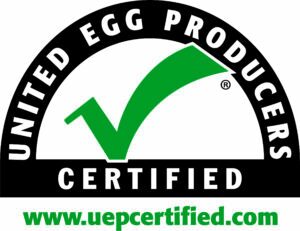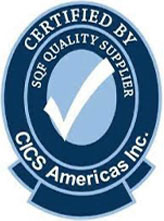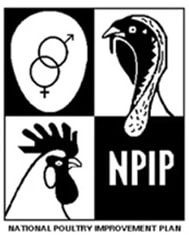

Order wholesale CAGE-FREE EGGS BY THE TRUCKLOAD IN CALIFORNIA
Eggs Unlimited is one of the leading suppliers of cage-free eggs in California. Our partnerships with domestic and international egg producers enable us to service all your cage-free egg needs. When you order cage-free eggs from Eggs Unlimited, you source your eggs from a leading worldwide supplier. Our California supply network helps customers create a more diverse and secure supply-chain. The Eggs Unlimited team has unmatched market reach and insight, so that producers always have an outlet for their products and buyers receive the most competitive prices available.
Eggs Unlimited has dedicated teams to manage all aspects of a transition, ensure timely pickup, deliveries, and payment through direct ACH deposits. Our customers get peace of mind that they have a team of market experts helping to manage their inventory positions and monitor the market in real-time, with a historical vantage from decades of experience.
Faqs
Where does California get their eggs from?
- Local California Producers
- Neighboring States
- National Suppliers
- Specialty and Organic Eggs
The combination of local producers, neighboring states, and national suppliers allows California to maintain a steady supply of eggs to meet the needs of its population. The state’s specific regulations related to egg production have influenced how eggs are sourced and produced to meet the standards set by California law. To Learn more contact eusales@eggsunlimited.com.
What makes california eggs compliant?
It’s important for those involved in the production and sale of eggs in California to be aware of and compliant with California law and regulations. Non-compliance can lead to legal issues and the removal of eggs from the market. California has several laws and regulations that govern the production, sale, and labeling of eggs within the state:
California Egg Quality Standards: Eggs sold in California must meet specific quality standards related to cleanliness, shell integrity, and other factors. These standards are designed to ensure that consumers receive high-quality eggs.
Proposition 2 (2008): Proposition 2, also known as the Prevention of Farm Animal Cruelty Act, set standards for the treatment of egg-laying hens. It requires that hens have enough space to stand up, lie down, turn around, and extend their wings without touching the sides of their enclosure. This law has had a significant impact on egg production methods and the treatment of hens.
AB 1437 (2010): Assembly Bill 1437, passed in 2010, further defined the housing requirements for egg-laying hens as outlined in Proposition 2. It specified that hens must be kept in enclosures that comply with animal welfare standards.
Proposition 12 (2018): Passed in November 2018. This law requires that covered animals be housed in confinement systems that comply with specific minimum standards for freedom of movement, cage-free design, and minimum floor space, and identifies covered animals to include veal calves, breeding pigs and egg-laying hens, as specified.
Labeling Requirements: Egg cartons must be properly labeled to provide consumers with essential information. This includes labeling the size of the eggs, the grade, and, if applicable, information about production methods (e.g., cage-free, free-range, organic).
Handling and Storage Guidelines: Eggs must be handled, stored, and transported in a manner that maintains their quality and safety. This includes proper refrigeration and sanitation practices.
Inspection and Licensing: Producers and sellers may be subject to inspections by the California Department of Food and Agriculture (CDFA). They may also need to obtain appropriate licenses and permits to sell eggs in the state.Salmonella Prevention: Producers must take measures to prevent Salmonella contamination, which can be a risk associated with eggs. This includes proper cleaning and disinfection of egg facilities and testing for Salmonella.
Are all eggs in California cage-free?
Short answer, yes. They should be by law.
Not all eggs in California are produced under cage-free conditions. However, California has specific regulations that have significantly impacted the way eggs are produced and marketed within the state. The key regulations that have influenced egg production in California include Proposition 2 and AB 1437.
Proposition 2 (2008): Proposition 2, also known as the Prevention of Farm Animal Cruelty Act, set standards for the treatment of egg-laying hens. It required that hens have enough space to stand up, lie down, turn around, and extend their wings without touching the sides of their enclosure. Proposition 2 led to a shift away from traditional battery cages.
AB 1437 (2010): Assembly Bill 1437, passed in 2010, further defined the housing requirements for egg-laying hens as outlined in Proposition 2. It specified that hens must be kept in enclosures that comply with animal welfare standards.
As a result of these regulations, many egg producers in California transitioned to alternative production methods, such as cage-free systems, in order to meet the new standards for animal welfare.
Consumers in California have a choice between cage-free eggs and eggs from more humane production systems, and many grocery stores and retailers offer a variety of options to meet different preferences. The labeling on egg cartons typically provides information about the production method, helping consumers make informed choices.
Proposition 12 (2018): Passed in November 2018. California voters approved Proposition 12, the Farm Animal Confinement Initiative, which amended requirements in Chapter 13.8, sections 25990 through 25994, of the Health and Safety Code (HSC), Proposition 2 (2008). This law requires that covered animals be housed in confinement systems that comply with specific minimum standards for freedom of movement, cage-free design, and minimum floor space, and identifies covered animals to include veal calves, breeding pigs and egg-laying hens, as specified.
The law prohibits a farm owner or operator from knowingly causing any covered animal to be confined in a cruel manner, as specified, and prohibits a business owner or operator from knowingly engaging in the sale within the state of shell eggs, liquid eggs, whole pork meat or whole veal meat, as defined, from covered animals confined in a cruel manner. The complete text of the law (HSC sections 25990–25994), including confinement requirements, definitions, compliance dates, exemptions and penalties is available here: HSC 25990-25994.
To understand more California regulatory framework, food safety, and best practices for egg production and distribution contact Eggs Unlimited for Cage-Free Egg needs: eusales@eggsunlimited.com
Who is the largest supplier of eggs in California?
The egg industry is served by multiple large egg producers and distributors within the state. The California egg market is diverse, with various suppliers and brands competing. Eggs Unlimited is one of the largest egg suppliers and has one of the largest networks in the industry. For more information contact eusales@eggsunlimited.com
How much do eggs cost in California?
The cost of eggs in California, like in other places, can vary based on several factors, including the type of eggs (cage-free, organic, free-range, etc.), the brand, the store, the carton sizing, and the region within California. This affects all shapes and sizes including:
- A dozen eggs (12 eggs) large white or brown cage-free eggs typically range from California.
- 30 dozen eggs (360 eggs) in California, for cage-free large white or brown eggs,
- 15 dozen eggs (180 eggs) in California, for cage-free large white or brown eggs,
- 18-count carton of large white or brown cage-free eggs in California typically
Prices can change over time as the market is extremely volatile in nature due to supply and demand, and regional variations can be significant. To get the most accurate and up-to-date pricing for eggs in California, I recommend contacting wholesale suppliers, egg distributors, or checking with local stores or online retailers for bulk purchasing options. Eggs Unlimited can directly put you in touch with these sources for bulk purchasing needs. eusales@eggsunlimited.com
How to sell commercial eggs in California?
Selling commercial eggs in California involves following specific regulations and procedures to ensure the safety and quality of the eggs. Here’s a guide on how to sell commercial eggs in California:
Business Planning: Start by developing a business plan that outlines your objectives, scale of production, target markets, and financial projections.
Legal Requirements: Familiarize yourself with the regulations and legal requirements for selling commercial eggs in California. The California Department of Food and Agriculture (CDFA) oversees these regulations. You may need permits and licenses, depending on the scale of your operation.
Egg Quality Standards: Ensure that your eggs meet California’s egg quality standards. This includes factors like egg size, weight, cleanliness, and freshness.
Egg Grading: Eggs sold commercially may need to be graded, depending on your target market. The grading process assesses factors such as shell quality and the integrity of the yolk and egg white.
Food Safety Regulations: Comply with food safety regulations to ensure the safety of your eggs. Proper storage, handling, and sanitation practices are crucial. Make sure your facilities adhere to food safety guidelines.
Packaging and Labeling: Package eggs in clean and sanitary cartons. Label cartons with essential information, including size, weight, grade (if applicable), producer information, and expiration date.
Distribution Channels: Establish distribution channels to sell your eggs. Commercial egg producers typically supply eggs to wholesalers, distributors, grocery stores, restaurants, and foodservice establishments.
Production Facilities: Ensure that your production facilities meet the required sanitary and safety standards. Maintain a clean and healthy environment for your hens and implement biosecurity measures to prevent disease.
Record Keeping: Keep detailed records of your egg production and sales. This is crucial for tracking your business performance and ensuring compliance with regulations.
Quality Assurance and Inspection: Consider participating in quality assurance programs and inspections to demonstrate your commitment to egg quality and safety.
Egg Handling and Transportation: Follow proper egg handling and transportation practices to maintain egg quality during transit. Ensure that eggs are stored and transported at the correct temperatures.
Market Research and Branding: Conduct market research to understand the demand for eggs in your target market. Consider branding and marketing strategies to differentiate your eggs from competitors.
Insurance: Consider obtaining liability insurance to protect your business from potential legal issues.
Legal and Business Advice: Consult with legal and business professionals to ensure that you meet all legal requirements and protect your business interests.
Stay Informed: Stay updated with changes in regulations, food safety guidelines, and industry trends. The egg industry is subject to evolving standards and requirements.
Consult an Industry Expert: Eggs Unlimited is one of the leading suppliers of cage-free eggs in California. Contact us today! https://www.eggsunlimited.com/contact/
Selling commercial eggs in California requires a thorough understanding of the regulatory framework, food safety, and best practices for egg production and distribution. Work closely with the CDFA and seek expert advice to ensure that your commercial egg business operates legally and successfully in California. Contact Eggs Unlimited today! eusales@eggsunlimited.com
California egg certifications
The United Egg Producers (UEP) has developed guidelines for conventional hen housing. To qualify as UEP-certified, processors are subject to site visits, where they must verify that their hens meet UEP guidance. Eggs from certified farms may have a UEP label on their packaging. Eggs Unlimited offers UEP-certified products, along with USDA-certified conventional eggs and non-UEP production.




Why Eggs Unlimited?
Eggs Unlimited is one of the leading global suppliers of conventional eggs. We have the experience and market knowledge to help save our customers time and money. We work with some of the largest egg producers, retailers, distributors, foodservice organizations, QSRs, and processors in the US and around the world. They trust us to provide competitive prices and take care of logistics from pickup to delivery.
We act as an extension of our customers’ procurement or sales teams, creating value, providing solutions, and delivering on time and in full. The company is built on family values, and we strive to work harder than anyone in the industry to service the needs of our customers.
LET’S DISCUSS YOUR local wholesale california EGGs STRATEGY!
Get in touch with the Eggs Unlimited Sales team to discover all your conventional egg options.
Call: 888-554-3977
E-mail: eusales@eggsunlimited.com.
